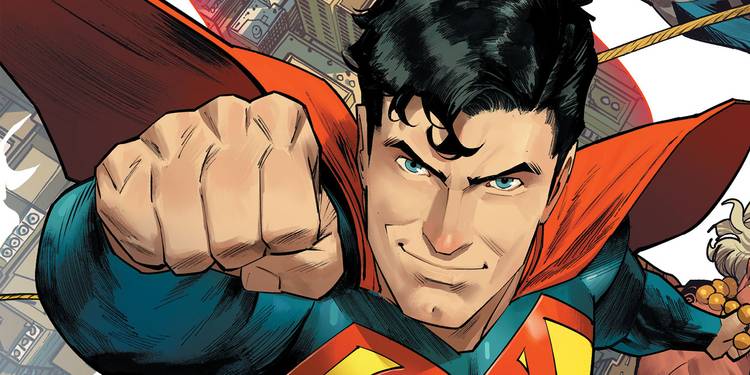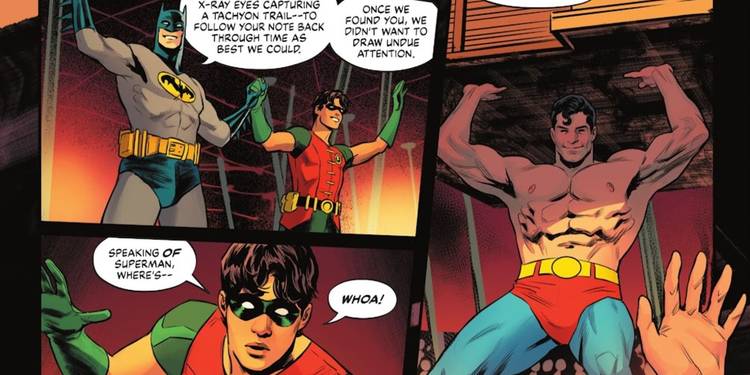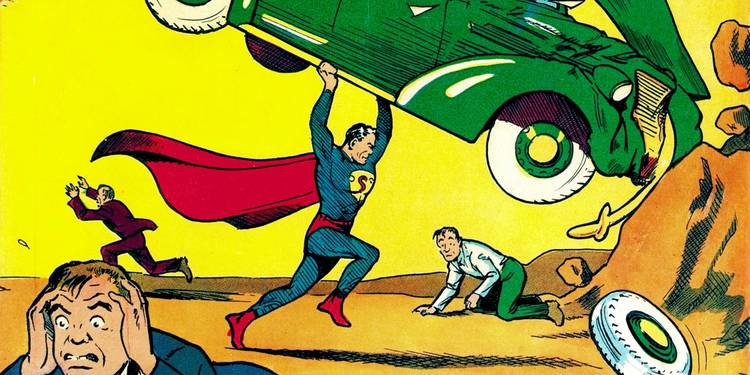Superman — like any popular character in pop culture — has been through plenty of evolution and change over the decades. Since his creation, Superman has come to mean a lot of things to a lot of people, bringing in lots of creative teams to develop a character who went on to define an entirely new genre of storytelling.
Batman/Superman: World’s Finest #6 (by Mark Waid, Travis Moore, Tamra Bonvillain, and Dan Mora) brings the pair back in time to briefly join the circus. This also alludes to the Man of Steel’s original design and the undeniable role that circus performers played in defining Superman and by extension many superheroes’ archetypical designs.
Batman and Superman are thrown back in time, in search of a time-displaced Dick Grayson, aka Robin. The pair find him in Corto Maltese in 1892, working with the Stratford Circus. This plays into his origins as a circus performer as a part of the Flying Graysons. When Superman and Batman arrive, Grayson convinces them to stall their return to the present, giving him the chance to solve a mystery that’s been gnawing at him since his arrival. Both heroes agree, with Batman quickly becoming one of Robin’s acrobatic partners. Superman meanwhile takes on the identity of a bodybuilder, using his immense strength to disguise himself as a circus strongman.
While this is a good use of his abilities to help further his team’s place in the circus, it also carries textual weight. Superman creators Jerry Siegel and Joe Schuster are two of the most important people in the history of western comic books, as their most famous creation helped inspire the entire superhero genre. As a result, many of their concepts became the bedrock for similar characters — like brightly colored tights and a cape.
The design for Superman was based in part on the costumes of circus strongmen, at one point even including laced-up sandals similar to the kind used by these circus performers. It’s clear that the classic designs of superheroes descended directly from their aesthetic, all thanks to Superman — who is regarded as the first superhero in the modern definition of the word. Superman’s costume has changed over the years, but his typical appearance remains a core aspect of the genre.
That’s what makes his brief tenure as an actual circus strongman fitting, as it allows the Man of Steel to briefly embrace the legacy of the entertainers who inspired his character. While other heroes, like Dick Grayson, have continued to keep circus entertainers present in the superhero-filled DC Universe, Superman has become defined by so many of their elements that it can be hard to remember the foundation that paved the way for the character. Without circus strongmen influencing Siegel, the imagery associated with superheroes might be something completely different — and Superman would have lost an iconic piece of his design. As a result, getting to see the Man of Tomorrow live out a reference to his creative past gives additional weight to the story.


